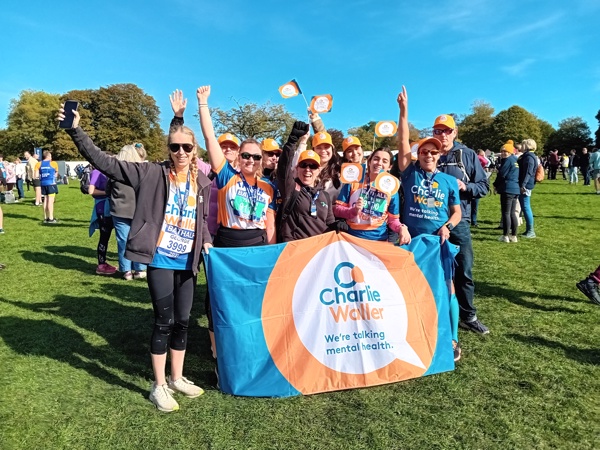The last taboo? Talking about menopause at work
May 18 2022

Gemma
How ironic that only a few days after Penny and I had been discussing the menopause we received a request from a college to deliver menopause training. Given my current experience of going through the menopause I thought this is something I would like to do. Along with working collaboratively with the college, I thought that teaming up with Penny, given our recent conversations over coffee, would work well in developing a training session.


Penny
After a coffee with Gemma one day, she complained about putting on weight and finding it very hard to shift. Being firmly ‘post-menopausal’, I was able to reassure Gemma that I’d been through the same, that it was to do with the menopause, that it was nothing she was doing wrong. The weight would come off and she would probably come out the other side feeling better than ever.
For me, one of the stand-out things about going through the menopause was the total lack of any kind of road map. All I had gleaned about it was from dark whisperings about ‘the change’, unhelpful media coverage about HRT and cliched information on hot flushes. None of this gave me any idea how to navigate my way through a time which I thought – along with so many other aspects of womanhood – was just something you had to get on with, put up with and pretend to other people wasn’t happening. And it is only now, reading some of the recent information making its way into the media and talking to people like Gemma, that I am realising that years of sleeplessness and anxiety - things of the past now, thank goodness - were actually related to the menopause and not to me being deficient in some way or doing something wrong. Because I didn’t really suffer too much from hot sweats or night flushes, it didn’t occur to me until later that those other symptoms were menopause-related.
Such was my ignorance. It would have been so helpful at the time to be able to contextualise it all and recognise the true impact this temporary hormonal upheaval was having on my mind and body - with the emphasis on temporary. I read a book a long, long time ago that talked about ‘post-menopausal zest’. I held onto that idea like a beacon of hope. And for me it has become a reality. I would say that once through it, life after menopause can be wonderful. Look at how many powerful, successful, attractive post-menopausal women there are. But nobody ever really talks about that.
Gemma
I can’t remember when I started going through the menopause. What I can remember is feeling exhausted, lethargic and noticing I had gained some weight. I thought ‘is it me?’ The last two years I have spent most of my time working at home. On the whole I enjoy this but my life had changed overnight from travelling up and down the country and being very much on the go providing face-to-face training for Charlie Waller, to delivering online learning. Before speaking to Penny and my family, I must confess I tried to mask how I was feeling inside and would portray to the outside world everything was ok, something that many people do.
As you do, I googled my symptoms. Poor sleep: I would literally fall asleep and 20 minutes later wake up. I would, and still do, wake many times in the night. I didn’t want to tell anyone, although I felt like shouting out loud ‘it’s the menopause’. I have found myself snapping at family and friends and then falling into a cycle of self-doubt, worried what they would then think of me and my irritability and low mood. Having a conversation with my sister just the other day, I also recognised that I have been finding it more difficult to challenge any negative self-talk. I have worked hard for many years to be less self-critical but I have noticed over recent weeks that I am back into that cycle of self-doubt, asking myself ‘Am I good enough?’
Although I am able to recognise that the symptoms of the menopause will pass, it’s hard to remind myself of this. What has helped is taking that step of sharing with those close to me that I am going through the menopause and not feeling so alone. I am also trying hard to navigate work and the lack of sleep and self-doubt by being more open and honest and sharing worries and concerns with colleagues.
My experiences have taught me that if we are open and talk more freely about the menopause - that includes to our loved ones - then it can be normalised and seen as a life event that can bring loss, change, challenges. Rather than being in ‘the thick of it’, masking it and unsure about what is happening, we can be compassionate to ourselves and supportive of one another.
Gemma and Penny
Having done some trawling through the internet and looking at various ‘menopause in the workplace’ guides, we both felt that none of these really resonated with us. They all felt too dry, too theoretical, lost the woman behind the ‘symptoms’ or were rather exaggerated and made going through the menopause at work into a minefield to be cautiously navigated by all and sundry, not least the employer or line manager.
This led to us both deciding that the best way to get a sense of how our audience felt about the menopause and what they wanted from our training was to ask them.

We sent out a simple survey, aimed at everybody in the workplace - women of all ages, trans, non-binary, intersex and men - asking about the following:
- barriers to talking about the menopause at work
- what might make it easier
- how menopause symptoms might impact on work
- what they would like to see in training about managing the menopause at work
We gave lots of opportunity for free text replies.
We were overwhelmed by the response. Within a few hours we had 50. The replies just kept coming in, 125 in all, including from men, intersex people, and non-menopausal women, which is what we had hoped for.
This gave us a wealth of invaluable data which we used for the basis of our training.

As the Charlie Waller Trust is primarily a mental health charity, our first concern was about the impact of the menopause on mental health and how to address this effectively in the workplace. We didn’t just want to tell people what they already know or repeat a list of symptoms, which people may or may not have identified with.
One key element we wanted to stress in the training was that it is ‘your menopause, not the menopause,’ that the menopause affects everyone differently and that it can even affect the same woman differently from week to week or month to month.
We had some idea of what we thought we should cover but the richness of the responses, especially from the free text answers, made us rethink the emphasis and breathed life into our slides. What we found revealed aspects way beyond the ones most commonly cited, for example, the fear of heavy bleeding and leaking, severe rashes and skin conditions, the brain fog, constant exhaustion, poor memory, anxiety, low mood and emotional volatility. There can also be a profound sense of loss, including a loss of fertility, as well as feeling isolated and lonely. Much of this was exacerbated in the workplace (and possibly at home) by embarrassment and the fear of being judged.
There are doubtless some mental health difficulties associated with the menopause, anxiety and low mood being the most common, often made worse by lack of sleep. However, we both felt that much of the impact on mental health comes from the sense of confusion, shame and isolation so many women feel when trying to navigate through uncharted territories without knowledge, support or information. The pressure of trying to cover up or compensate, of feeling afraid of being judged or rejected and not taken seriously will all add to increasing stress levels, fear and anxiety.
Not surprisingly, the respondents who worked in strongly supportive, usually female, environments, felt this made all the difference to how the menopause impacted on their work and mental wellbeing.

How can we extrapolate from our survey some indication about what might help support women in the workplace with their mental health as they go through the menopause?
Firstly, by normalising the whole process. Let’s not treat the menopause as some weird and shameful thing that has to be gone through in secret. It is a natural process. One of the impacts of our survey we heard anecdotally was that it got some younger women talking about it, reflecting on how little they knew. As one respondent commented, ‘I didn’t know it would be a problem, until it was’. How great it would be if children were given education on the whole fertility process from menstruation to post-menopause at school!
If some of the symptoms are unpleasant and hard to manage, let’s offer compassion, support and understanding. If workplaces can support women through pregnancy and maternity leave, understanding that this is a natural process and can be unpredictable and different even from pregnancy to pregnancy, can they not apply the same principles to the menopause? Thank goodness we have made some progress from a time where young women were not appointed or promoted in case they ‘went off and had babies’, with pregnancy and maternity becoming a protected characteristic.
So maybe workplaces can also wake up to the fact that the menopause exists. A large number of employees will either be going through or about to go through it. It is nothing to be afraid of. All that’s needed is a bit of education, open discussion and forward thinking to help employees who may need some (usually temporary) extra support, flexibility or acknowledgment of what they are going through to continue to thrive until they come out the other side.
A recent survey by the Fawcett society published May 2, 2022, supported our findings, revealing that 44% of women said their ability to work had been affected, comprising 18% of women who said that their symptoms currently affected their ability to do their jobs, and 26% in the past. 61% said that they had lost motivation at work due to their symptoms, and 52% said they had lost confidence.
What can you do?
Some simple recommendations from our respondents about what would help them were:
- To have more people talking about it; slowly this will start to normalise the menopause and take away the embarrassment and stigma
- Training, knowledge and understanding
- Having others in the same situation to talk to eg a menopause forum or champions
- Including discussions about the menopause as part of a wellbeing conversation
- Having a menopause policy

If you feel that your menopause symptoms are impacting your work:
- Identify someone you would feel comfortable talking to eg your manager, HR, colleague, menopause champion.
- Think about what adjustments could be made eg flexible working.
- Talk to your GP. HRT had a very negative press a few years ago; much of this has been debunked now.
- Remember this is a normal life stage and nothing to be ashamed of or embarrassed about.
And if you’re not sure how to respond:
- Listen without judgement
- Acknowledge and validate what the person is going though
- Don’t be embarrassed
- Ask what would be helpful - you don’t have to have all the answers
- Don’t make assumptions; everybody’s experience is individual
Remember, this is only a life stage; however, it is important to take it seriously, see the person beyond the symptoms and remember that being supportive can make the world of difference.
If you would like to arrange a training session on the menopause, please contact us.
Related
Popular
Upcoming event

Join us for the Bath Half Marathon to support young people and their mental health!

The Charlie Waller Trust
The Charlie Waller Trust is a registered charity in England and Wales 1109984. A company limited by guarantee. Registered company in England and Wales 5447902. Registered address: The Charlie Waller Trust, First Floor, 23 Kingfisher Court, Newbury, Berkshire, RG14 5SJ.
Copyright © 2025 The Charlie Waller Trust. All rights reserved.






